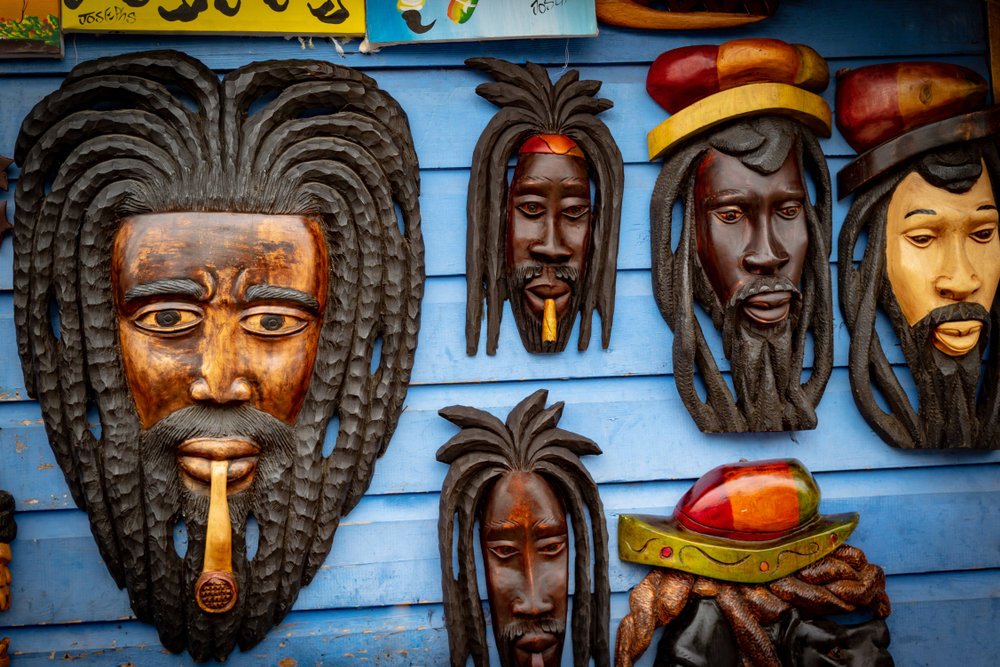
Rastafari is a religion that is commonly misunderstood by outsiders around the world. Many people associate being a Rasta with simply wearing one’s hair in dreadlocks and a fondness for smoking marijuana. While these are common practices within the Rastafari movement, there is more to this belief system that originated in the 1930s among marginalized communities in Jamaica as a response to British colonialism and culture. Thanks largely to Western media, Rastafari has been largely mischaracterized to the point that many people don’t recognize it as a belief system.
Defining Rastafari
There is quite a bit of debate when it comes to defining this religion. Many religious scholars consider it to be an Afro-Jamaican religion, and in many countries, it is viewed as such. Some academics consider it to be a sociopolitical or cultural movement, especially given its origins. Several adherents, known as Rastas, view this belief system as more of a philosophy or a way of life that is more along the lines of spirituality than a traditional religion. Many reject the term “Rastafarianism” because of the implicit suggestion of a doctrine or unified institution. In fact, some followers view the overall belief system as a collection.
Understanding Rasta Beliefs
Although many Rastas reject the idea of a single doctrine, instead emphasizing individuality and personal experiences, Rastafari is strongly influenced by Judaism and Christianity:
- Deity Worship/Monotheism: Most Rastafari followers are monotheists, worshipping a God that they refer to as “Jah,” a shortened form of Jehovah. In English translations of the Old Testament, Jehovah is the name for God. Many Rastas think of God as being manifest in the physical world and as an entity that can be known, as opposed to being believed in.
- Bible: Many followers regard the Bible to be a holy book; however, they regard many of its Old Testament accounts to be a record of early African history. The Bible, in their view, details their history as God’s chosen people. This sacred text is both a historical text and a guide for their current spiritual life, particularly the book of Revelation.
- Jesus: Although many Rastas view Jesus as an important figure, they largely reject the depiction of him as a white Caucasian man. This traditional version of Jesus is largely considered to be a false god and a manifestation of the devil.
Despite some Rastafarians considering themselves to be Christian, much of what is considered Christianity in practice is viewed as a perversion of the truth by Rastafari devotees.
Clearing Up Common Misconceptions
The Rastafari religious movement has also been misunderstood based on pervasive stereotypes:
- Bob Marley: While Bob Marley was a prominent Rasta figure, he was not a founder of this belief system. Rastafari was originated by Jamaicans in the early 20th century as a response to British colonialism. The pro-African nationalist bent of Rastafari was inspired by the work of Marcus Garvey. The movement solidified when Haile Selassie I became emperor in Ethiopia, and the religion takes its name from Selassie’s birth name, Ras Tafari Makonnen. Selassie is often considered to be a Messiah to many Rastas.
- Cannabis: In Rastafari, the smoking of marijuana or cannabis is considered a sacrament. Many Rastas consider it to have healing properties, and it is also believed to be essential for discovering one’s inner divinity.
Another common misconception is that Rasta colors are black, red, green and yellow, as seen in the Rastafarian flag. The yellow color is actually supposed to be gold, which is inspired by the gold found in Ethiopia, which is the country of Haile Selassie I.
With over one million followers throughout the world, Rastafari is more than just a religion practiced solely by Jamaicans. Despite its similarities to some organized faiths, many of its followers don’t see it as a centralized faith and accept variations in belief and practice.

